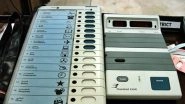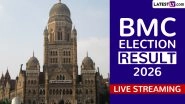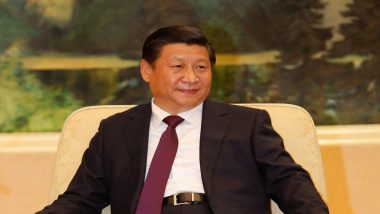Premier Li Keqiang, the head of the government in China, delivered the annual “work report”, which detailed core programs and targets set for the economy in a three-hour state-of-the-nation address at the National People’s Congress in Beijing.
Apart from announcing a growth target of 6.5% for the Chinese economy, the other highlight of the speech was his reference of President Xi Jinping’s name multiple times during the speech. If one was to take count, Jinping was referred to 13 times during this long address. According to a report in Wall Street Journal, this makes Xi Jinping the only serving leader after Mao Zedong to receive so many mentions.
The praise heaped on Jinping and also referred to as ‘core’ leader only highlights the show of support by the Communist Party top brass to Xi Jinping’s decision to do away with term limits for China’s president.
The two week session of the National People’s Congress is also scheduled to amend the constitution to include a reference to Xi’s political theory, enshrine the Communist Party’s leading role in governing the country and create a new anticorruption commission that expands party oversight of all public servants.
Under Chinese constitution, the National People's Congress (NPC) China's parliament is the most powerful organ of state and meets annually. The congress is made up of nearly 3,000 delegates elected by China's provinces, autonomous regions, municipalities and the armed forces. Delegates hold office for five years, and the full congress is convened for one session each year.
The NPC is meant to be the body that ensures the Government and the Communist party adheres to rule of law and the will of the people through elected delegates, much like a parliament in a Western democracy. In truth, it is little more than a rubber stamp for party decisions. About 70% of its delegates - and almost all its senior figures - are also Communist party members. Their loyalty is to the party first, the NPC second.
At this congress, delegates will rubber stamp critical changes to the constitution that will give the Party more control than ever and give one man, President Xi Jinping the potential to rule for life.
Explaining for the first time why the CPC opted for such a move, spokesman of the National People’s Congress Zhang Yesui told media here that the president has the term-limit while there was no term limits for head of the party and the military.
“Well according to the constitution of the CPC there is no such provision that there shall be no more than two successive terms for the General Secretary or Chairman of the Central Military Commission (CMC) in the constitution of the China. The CMC is the overall high command of the 2.3 million strong Chinese military. “So for the Constitution, it follows the same practice regarding the term of the President. It is conducive to uphold the authority of the Central Committee of the party with Xi Jinping at the core and also unified leadership. It is also conducive to the unified state leadership system”, he said.
While a wary world looks on as Xi Jinping consolidates his power, Donald Trump’s reaction to China’s announcement of removal of presidential term limit was anything but expected. Speaking at his Mar-a-Lago estate in Florida during a lunch and fundraiser with Republican party supporters and donors, Trump disclosed his admiration for what Jinping had managed to achieve. According to a report in CNN, Trump said, “He's now president for life. President for life. No, he's great," Trump said. "And look, he was able to do that. I think it's great. Maybe we'll have to give that a shot some day."
(The above story first appeared on LatestLY on Mar 06, 2018 09:26 AM IST. For more news and updates on politics, world, sports, entertainment and lifestyle, log on to our website latestly.com).













 Quickly
Quickly


